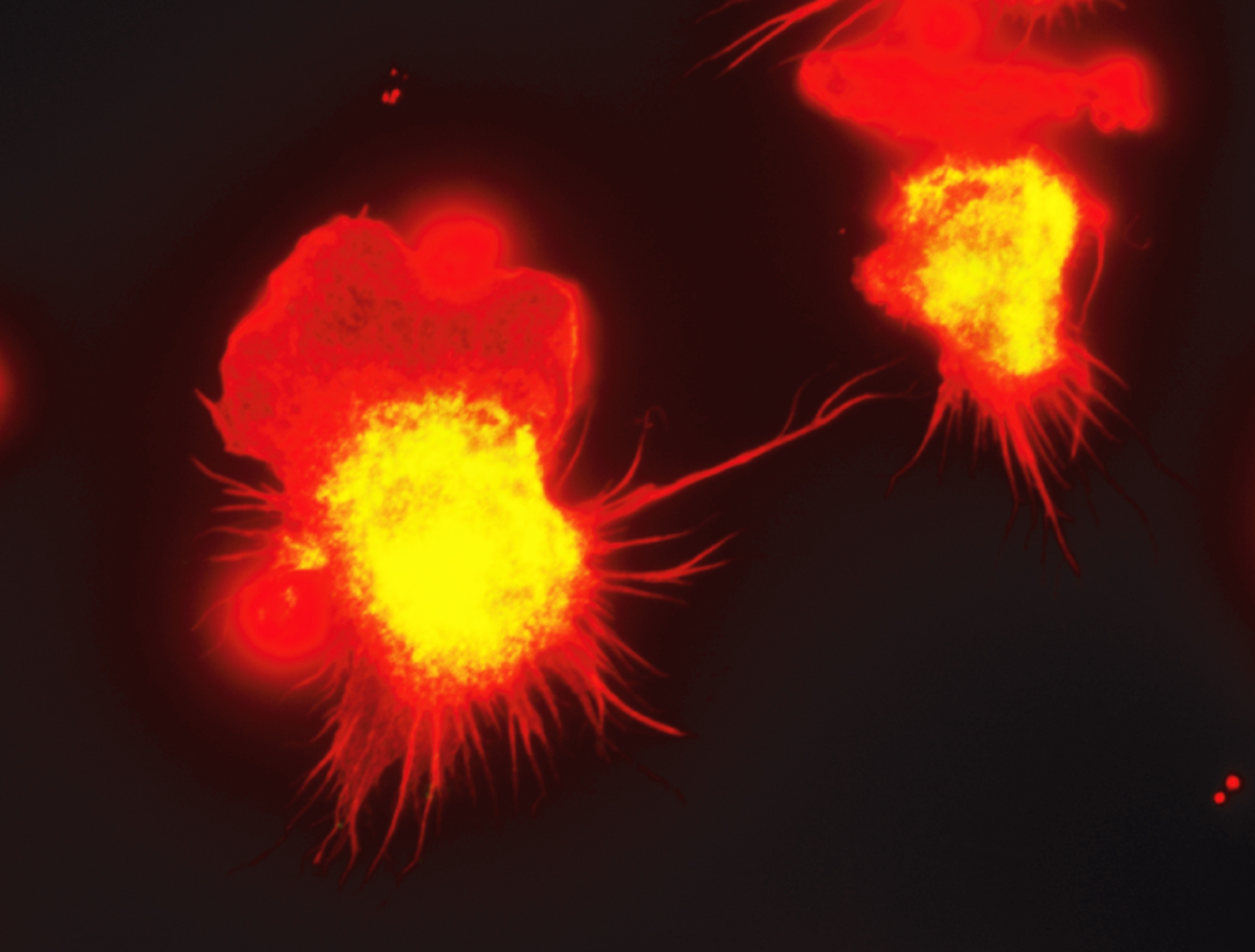By turning off "gene switches" MafB and c-Maf, the Michael SIEWEKE’s team, associating the CIML and the Max Delbrück Center for Moleculare Medicine (MDC) in Berlin, has previously shown that mature immune cells like macrophages were capable of multiplying almost infinitely.
Today, the researchers demonstrate that such cells are capable of auto-renewing without any genetic engineering. Published in the online edition of Science on january 21, this study shows that macrophages achieve this performance by activating a gene network similar to those found in embryonic stem cells. In the future this finding could provide new perspectives for regenerative medicine and therapies.
The tissues of our body consist of differentiated cells which must be continously replaced; a real challenge for certain cell populations like immune cells, which are constantly exposed to the attacks of our environment.The ability to self-renewal and to build up cellular mass to maintain or repair tissues has normally been considered a specificity of stem cells. Michael Sieweke's team now demonstrated that such ‘stem cell’ properties slumber in mature differentiated cells
The researchers has already shown few years ago that "switching off" two cellular regulators, the transcription factors MafB and c-Maf, in macrophages allows these immune cells to expand almost indefinitely in cell culture. In this new study, they reveal that macrophages can also self-renew without any genetic engineering.
In certain conditions, macrophages reactivate
a pool of silent genes to self-renew
To capture the underlying workings of this cellular achievement, the team compared the genetic mechanisms involved in the embryonic stem cells and macrophages endowed with capacities of self-renewal. "We have discovered that these macrophages activate a set of genes shared with those used by embryonic stem cells to divide" says Michael Sieweke.
Although the active networks of genes are similar in both types of cells, their management differs: they are controlled by transcriptions factors and regulatory elements specific for each cell types. "It is good news that mature cells like macrophages can activate self-renewal genes similar to stem cells, but by using their own regulatary systems" continues Michael Sieweke, "This means that we can amplify these cells without changing their identity".
New perspectives for regenerative medicine and therapies
Michael Sieweke is convinced that these discoveries might find useful applications in the field of regenerative medicine. "If differentiated cells could be directly amplified, it might then become possible to replace diseased tissues without using embryonic or induced stem cells" explains Michael Sieweke.
Based on their role in tissue maintenance and regeneration, the transplantation of macrophages themselves might be useful to stimulate tissue regeneration in specific indications (for example in myocardial infarction or in lung and muscle disease). Sieweke's team has already shown that macrophages grown in laboratory cultures do not lose their properties. When injected into mice, the cells successfully re-integrate into tissues and perform their normal functions.

Source:
Activation of Self-Renewal Gene Network on a Macrophage-Specific Enhancer Platform
Erinn L. Soucie, Ziming Weng, Laufey Geirsdóttir, Kaaweh Molawi, Julien Maurizio, Romain Fenouil, Noushine Mossadegh-Keller, Gregory Gimenez, Laurent VanHille, Meryam Beniazza, Jeremy Favret, Pierre Perrin, Nir Hacohen, J.-C. Andrau, Pierre Ferrier, Patrice Dubreuil, Arend Sidow, Michael H. Sieweke.
More information about the lab
